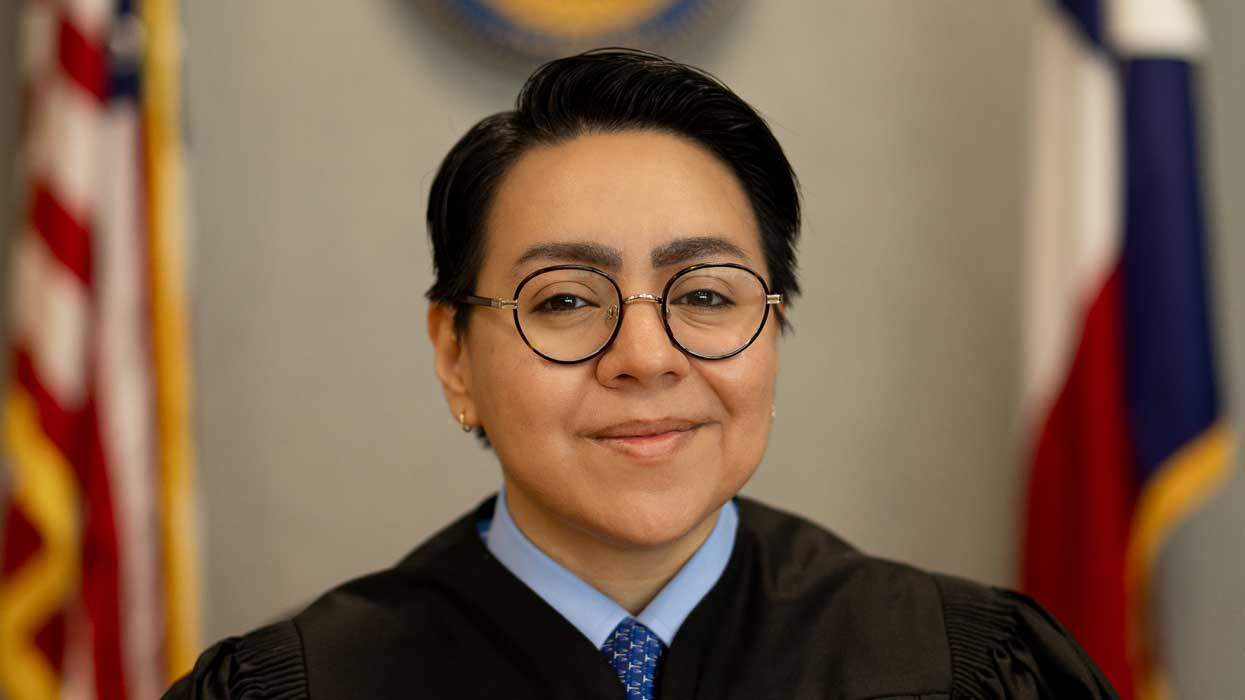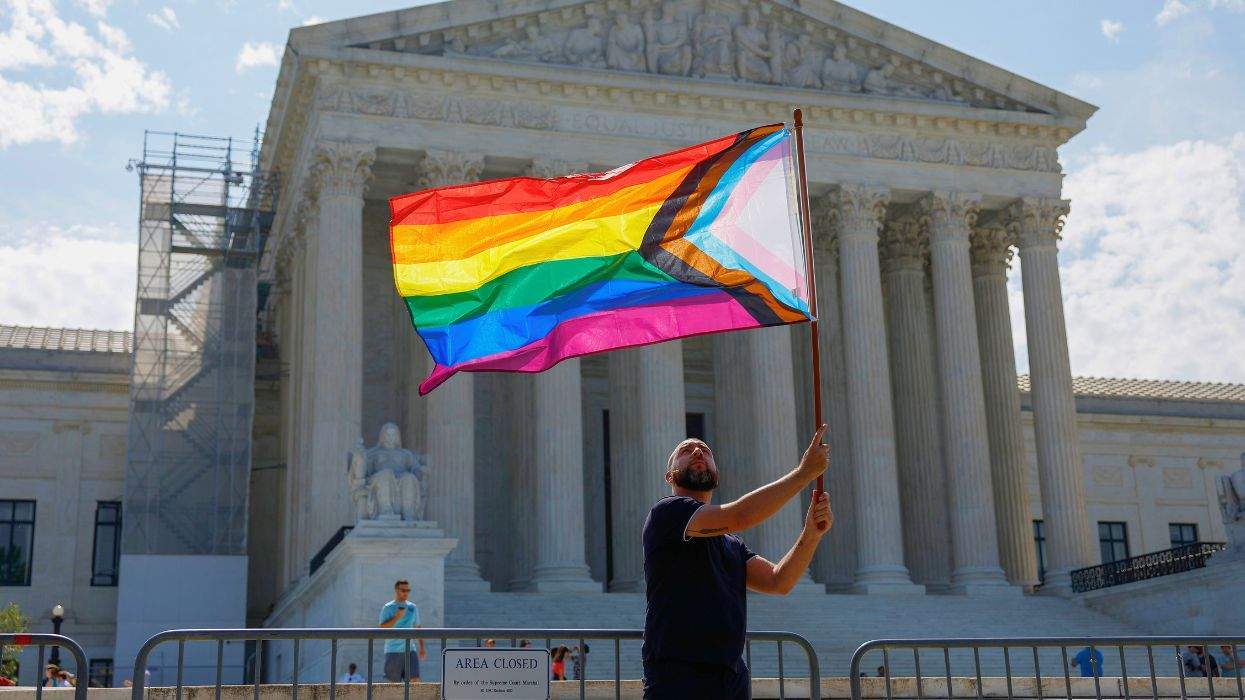My wife and I planned on having a baby this year. Instead we are settling for a kidney. "Both are really expensive," I tell her. "But at least we don't have to pay for the kidney's college." She laughs. We have to laugh. It is all we can do, because most of the time this journey is not funny. I'm a 34-year-old transgender man with end-stage kidney disease.
As I discussed in my post on The Body Is Not An Apology earlier this month, all bodies eventually fail. When and how this happens varies. In most cases, as our bodies fail, we seek treatment from specialists. But what happens when our bodies are different? When we are transgender or gender-variant? How our bodies are treated depends largely on whether we are able to find specialists who understand and recognize our unique needs.
When I came out as a transgender man 15 years ago, locating a primary care physician who would prescribe hormones was a challenge. Finding clinical specialists who had worked with transgender or gender-creative clients was simply unheard of.
While finding a primary care physician is much easier for most trans patients today, a 2015 survey found that more than 40 percent of transgender men reported experiencing discrimination when seeking health care. Even as the landscape for trans-affirming care shifts under the Obama administration and the Affordable Care Act, we are still a long way from having a health care system that is categorically inclusive of transgender people.
On May 13, the U.S. Department of Health and Human Services expanded protections for transgender individuals in health care, guaranteeing that we receive equal treatment by insurers and medical providers, and giving us the right to file claims against those who deny coverage or necessary treatment because of our transgender status.
This is a huge win for transgender people, but it also highlights a gap in care, because many, if not most, primary care providers have not received any training -- in medical school or through continuing education programs -- about how to understand and respectfully treat transgender patients.
This lack of knowledge is even more frustrating when it comes to seeking care for chronic illness. Finding a competent specialty care provider is challenging at best, and humiliating and dangerous at worst.
I know this from firsthand experience. At the time of my diagnosis, my wife and I were living in a rural community in the Midwest. I was reluctant to seek medical care, even at my large university health center, because it had a poor reputation when it came to respecting transgender patients. After suffering for days, I finally went to urgent care.
The moment I came out as transgender while sitting in urgent care, my gender identity became the sole focus of my visit. My nurse -- and countless other hospital staff -- asked me numerous questions about my transgender status and the specific surgeries I did or did not have. All of these inquiries were unrelated to the symptoms I was seeking treatment to address.
It was eventually determined that I needed to be hospitalized. I refused. I already felt like a zoo exhibit, with strangers gawking and prodding and demanding explanations for my transgender existence. After those disconcerting hours in urgent care, I couldn't risk being admitted to a hospital with staff that would continue this pattern.
I often think about this decision and about what it implies for transgender people more broadly. As a white transgender man who is read as male, I was reluctant to get the care that I needed, potentially placing my life in danger, because I was nervous about being misgendered or denied care. Even with the many privileges that I hold, I worried that my body would not be treated with dignity and respect.
My fears would be confirmed in the weeks that followed, when my primary care doctor sent me to a local kidney specialist. With limited information about what was causing my chronic kidney disease and no training on transgender care, these specialists recommended that I be taken off of testosterone -- a drug that is not metabolized in the kidneys but in the liver. I was reluctant to take this advice, but I did because I was scared. The result was that in the midst of one of the most challenging times of my life, my sense of identity and comfort in my body was stripped away.
This dismissal was all too common among the numerous specialists I visited. One radiologist confidently proclaimed, "I think I have isolated the problem. This man has a uterus." In another instance, a tech had barely started an abdominal ultrasound when she abruptly stopped the test, let out a small smirk, and immediately excused herself from the room. I waited there, lying on the table. Eventually, another tech came into the room and resumed the ultrasound -- with no explanation. After a few minutes, this second tech also paused and excused herself. Once more I waited, until the original tech came back to resume the ultrasound. When I confronted them about their unprofessional conduct, I was told, without a hint of irony, "We don't often get people like you here." My body was treated as a medical anomaly that should be studied and shared without my consent.
Almost all of us, whether we are transgender, cisgender, or nonbinary, will need to see a specialist at some point in our lives. Aside from the basic -- and important -- need for trans patients to feel safe, respected, and understood in medical settings, there are direct and sometimes dire health issues that can arise when medical fields require that patients be evaluated according to binary gender.
As I learned, gender is a key variable in calculating when a person can be placed on the wait list for a kidney transplant. State and national wait list determinations adhere to an assessment of a person's glomerular filtration rate (GFR), which is calculated differently for men and women -- with no recommendation for transgender people or others who do not fit into this restrictive binary. Assuming that all transgender people, regardless of transitional stage, can be treated within the standard system is not only problematic but can also be life-threatening. To be placed on the transplant waiting list, a person's GFR must be below 20. A score of a 20 for a man equates to a score of roughly 16 for a woman. This is a substantial difference in terms of percentage of kidney function and time spent on the transplant list.
Although the sequence of tests was often humiliating and painful, I did learn that my kidney disease was related to a childhood illness. This point is particularly important, as it's a powerful retort to the ever-present inquiries about whether taking testosterone all these years caused my kidney failure. It did not.
I was fortunate to switch my medical care to a major research hospital on the East Coast. It was in this setting that I finally found out what trans-competent care looks like. I was instantly restarted on a normal regimen of testosterone, and I finally feel like myself, even as my kidney function declines.
My kidney doctor has fought for my care, even pushing back on the standard GFR requirement to get me listed on the transplant list when I needed it. He understood that simply calculating my GFR as "male" was not an accurate measurement of my kidney function, realizing that my calculation is actually somewhere between the standard male and female range.
I recognize that many transgender people, especially in rural communities, may not have access or resources to seek alternative health care teams in the way that I have. But that shouldn't be the case. The last thing that any person should have to worry about in the middle of a health crisis is whether or not their providers will treat them professionally. We must demand better from our health care providers and from the schools that educate them.

He has been pleasantly surprised by the outpouring of love and support from the trans community -- especially his transgender brothers -- during this challenging time. Cameron welcomes connections with others who have been impacted by kidney disease and can be contacted through his website and his crowd-sourced fundraiser at PlumFund.















Charlie Kirk DID say stoning gay people was the 'perfect law' — and these other heinous quotes
These are some of his worst comments about LGBTQ+ people made by Charlie Kirk.